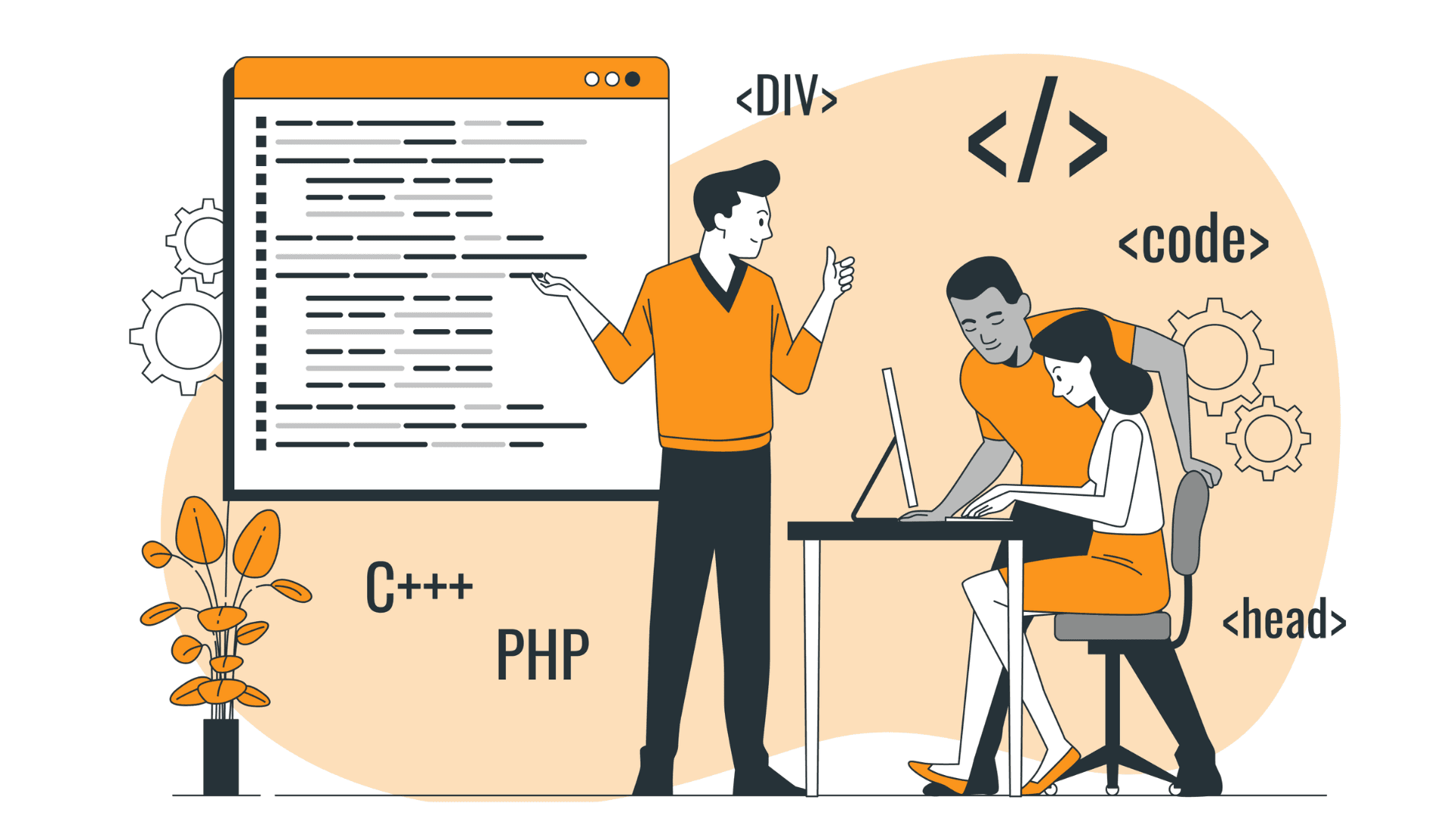
Web development remains one of the most popular professions in the tech industry. As companies worldwide increasingly rely on digital platforms, the demand for skilled web developers continues to grow. Whether you are starting out or advancing in your career, it is crucial to maintain relevancy. In this article, we will cover the required skills for front-end, back-end and full-stack developers in 2025.

Every website must be both visually appealing and functional. It is the front-end developer’s responsibility to ensure the website is user-centric and responsive. The core principles of web development along with framework will continue to be necessary in 2025. Therefore, learning modern frameworks such as HTML5, CSS3, JavaScript (ES6+), React, Next.js, and Vue.js will be essential.
The most popular and effective library for the creation of engaging user interfaces is React. Next.js also enables building applications with integrated SEO features using React. Vue.js is often used in smaller projects or legacy systems, where it excels due to its lightweight and flexible nature.
Java developers wishing to expand their career opportunities can do so by integrating Spring Boot with Angular or React on the frontend, thus enabling full-stack development positions.
As with any web application, the back end is crucial. Managing databases, server logic, and authentication systems forms the core of back-end development. In 2025, knowledge of Node.js, Express.js, and Django is forecasted to be in great demand.
With Node.js, developers can use JavaScript for server-side programming. Additionally, Express.js simplifies the development of web APIs. Django is also a good option for Python developers, as it allows rapid development and has robust built-in features such as admin interfaces and user authentication.
Developing APIs particularly RESTful and GraphQL services is also essential for smooth communication between the front end and back end.
A full-stack developer must possess skills on both the client side and server side. As of 2025, the MERN stack (MongoDB, Express.js, React, and Node.js) remains the most widely used full application stack. It enables developers to build complete applications entirely in JavaScript, minimizing context switching, streamlining workflows, and enhancing productivity. These tools are preferred by both startup and enterprise companies because they make cross platform development efficient and cost effective.
To remain competitive, learning from trusted platforms is essential. DMLearning offers practical courses for both novice and seasoned developers. If you are concentrating on front-end development, or even working with the MERN stack, there is an underpinning course designed to help you apply the knowledge gained.
DMLearning Highlights:
The pace of change in technology is remarkable and in order to remain relevant, it is critical to upskill continuously. After acquiring knowledge of fundamental skills of a front-end developer, navigating through back-end technologies, and full-stack frameworks such as MERN, will help in achieving a lucrative career in 2025 and in the years that follow.

Keeping up with the latest trends in web development is just as crucial as mastering your skills in core technologies. Here are some exciting developments that are set to shape the future of web development in 2025:
Serverless architecture is becoming increasingly popular due to its scalability and cost-effectiveness in managing infrastructure.
AI and Machine Learning are making their way into web applications, enhancing personalization, analytics, and enabling smart automation.
Progressive Web Apps (PWAs) are providing users with faster, more reliable experiences that feel just like using a native app, particularly on mobile devices.
Static Site Generators, like Gatsby and Hugo, are boosting site performance, enhancing security, and simplifying the deployment process.
If you're aiming to be a web developer in 2025, here are some essential tips to keep in mind:
Start building a solid portfolio that highlights your projects and coding abilities.
Contributing to open-source projects, the best way to gain hands-on experience and increase your visibility in the field.
Make it a habit to practice coding regularly through challenges on sites like LeetCode, HackerRank, and Codeforces.
Connect with professionals on LinkedIn, GitHub, and attend local tech meetups to expand your circle.
Here are top platforms to help you level up your web development skills:
DMLearning – Industry-relevant, Project-based learning with job support.
freeCodeCamp – Free tutorials and coding challenges for beginners.
Coursera and edX – University-level courses from institutions like Harvard and MIT.
Udemy – Affordable courses on specific tools and languages.
Web development is more than just writing code it's about solving real-world problems and turning ideas into dynamic online experiences. With consistent effort and the right tools, you're well on your way to becoming a skilled and future-ready developer in 2025!

Web development revolves around building websites and web applications that function on the internet. It’s divided into two primary areas: front-end, which encompasses everything the user sees and interacts with, and back-end, which involves all the behind-the-scenes processes that keep everything running smoothly. Developers who excel in both areas are referred to as full-stack developers.
Choosing web development as a career is a smart move, offering a wide range of job opportunities and competitive salaries. With more businesses moving their services online, the need for talented developers is on the rise. Plus, you’ll get to work on a diverse range of fascinating and exciting projects!
Start your journey with these foundational skills:
HTML: This is the structure of your web page. Think of it like the skeleton.
CSS: Defines the look of your site (colors, fonts, and layout).
JavaScript: This adds life to your website. It helps you create things like buttons that work or image sliders.
Once you’ve got the basics done, it’s time to level up your skills with some more advanced tools:
React: This is a fantastic framework for crafting smooth, interactive web pages.
Next.js: It helps make your websites faster and more SEO-friendly.
Vue.js: A super user-friendly option for building engaging websites.
The backend stores and processes data. For example, when you log into a website, the backend checks your credentials. Key backend tools include:
Node.js: JavaScript on the server.
Express.js: A tool to simplify server-side development.
Django: A Python tool for fast website development.
A full-stack developer knows both front-end and back-end. One of the best ways to achieve this is by mastering the MERN stack:
MongoDB – A place to store data (like user profiles or messages).
Express.js – Helps manage the server side.
React – Builds the user interface.
Node.js – Runs the server.
Here are some ways to gain that valuable experience:
Start by creating your own websites and apps, build your portfolio.
Get involved in open-source projects on GitHub
Look for internships or freelance opportunities to dive into real-world work.
Consider these platforms for beginner-to-advanced courses:
DMLearning: Job-focused, expert-led training.
freeCodeCamp: Free tutorials and hands-on projects.
Coursera: Courses from top universities.
If you’ve made it this far, you’re clearly serious about becoming a web developer, and that’s awesome therefore, stay curious, keep creating, and embrace the journey of learning.
Contact DMLearning today and take the first step toward your future in web development.
Email: hello@learning.digimantra.com
Phone Number: +91-9878383734
